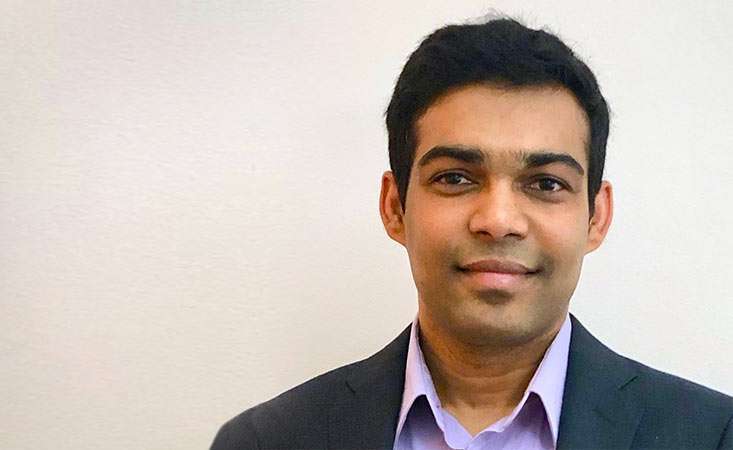
Krushna Patra, PhD
Editor’s note: We recently announced the recipients of the Pancreatic Cancer Action Network’s (PanCAN) 2020 research grants. Now we’d like to introduce you to each grantee to share what brought them to the field of pancreatic cancer research and what this funding means to them.
As a graduate student, Krushna Patra, PhD, studied how cancer cells break down sugar (a process called metabolism) in lung, breast and liver cancer driven by mutant KRAS and other tumor-initiating oncogenes.
He also learned that KRAS is mutated in around 95% of pancreatic cancer cases – and that mutant KRAS plays a critical role in many of the most aggressive features of pancreatic tumors.
“Pancreatic cancer has poorer survival rates than other KRAS-mutated tumors, suggesting the molecular circuitries must be different and need to be worked out,” he said.
Planning to focus on KRAS-driven pancreatic cancer, Patra joined the laboratory of Nabeel Bardeesy, PhD, for his postdoctoral studies. Bardeesy, a 2008 PanCAN grantee, is an expert in understanding the basic biological features of pancreatic tumors.
Patra found himself drawn to study the biology of pancreatic tumors with mutations in both KRAS and another gene, GNAS.
He learned GNAS is frequently mutated in pancreatic cancer derived from IPMNs (intraductal papillary mucinous neoplasms) – a kind of pancreatic cyst that sometimes leads to cancer.
“Initially, I planned to work on how the genetic interactions of mutations present in pancreatic cancer affect metabolism,” Patra recalled.
“IPMN precancerous lesions are very common in older individuals. As it is a relatively understudied field, I decided to understand the biology of KRAS-GNAS mutant pancreatic cancer, with a focus on signaling and metabolism.”
Patra set up his own lab at the University of Cincinnati in 2019, joining the department of cancer biology as an assistant professor.
To advance his work, Patra was awarded a 2020 PanCAN Career Development Award, generously funded by Steven & Cheryl Kole and Harriet & Gerald Berner Family Charitable Fund.
Patra described finding out about his PanCAN grant as “one of the most exciting moments” for him and his lab over the past several months.
“This is the first grant for my new lab,” he said, “so it means a lot to us. This grant will help us to achieve our focused goals, and we will be able to generate robust supporting data to apply for larger federal funding in the future.”
Patra’s Career Development Award will allow him to address several important questions about pancreatic tumors that arise from IPMNs:
- How is gene expression different in pancreatic tumors with KRAS and GNAS mutations?
- What metabolic processes are necessary to support the tumors’ growth?
- Should IPMN-derived pancreatic tumors be treated differently in the clinic?
This funding is especially important since the Patra lab – like many others – had to shut down abruptly because of the coronavirus disease pandemic. “This PanCAN grant is a timely help, giving us financial ease to hire additional researchers so that we can catch up on the momentum once we are fully open,” he said.
Patra finds inspiration from patients with pancreatic cancer and their families – their stories give him strength to “walk an extra mile” and get more work done.
“I’d like to tell patients, ‘Together we can make progress toward tackling this horrible cancer. We are committed and will put our best possible effort toward a hopeful future.'”
Patra is also extremely grateful to all of PanCAN’s donors – and particularly to Steven & Cheryl Kole and Harriet & Gerald Berner Family Charitable Fund – for supporting his research efforts.
“Thank you for your generosity,” he said. “I am honored to work together with you and PanCAN for a great cause.”





